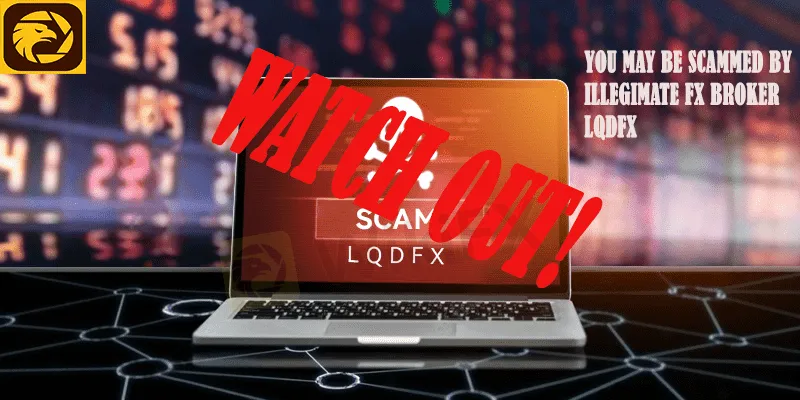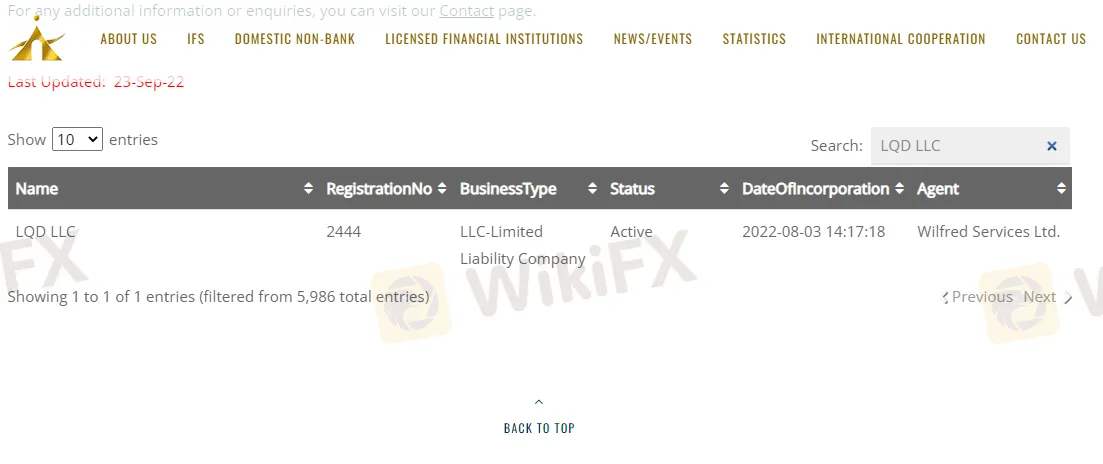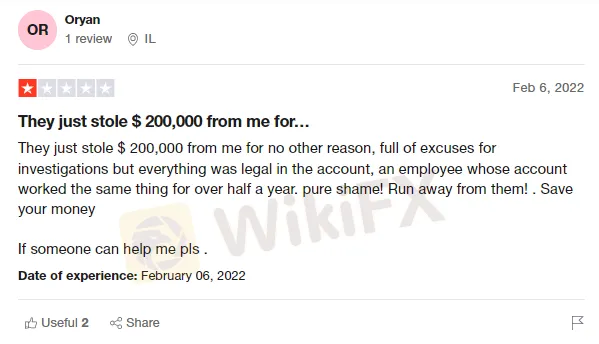简体中文
繁體中文
English
Pусский
日本語
ภาษาไทย
Tiếng Việt
Bahasa Indonesia
Español
हिन्दी
Filippiiniläinen
Français
Deutsch
Português
Türkçe
한국어
العربية
Watch Out! You may be Scammed by Illegimate FX Broker LQDFX
Abstract:While legitimate brokers boost your chances of success, opening an account with a shabby broker can make your trading journey no less than a nightmare.

There have been many incidents where people have lost thousands of dollars to scam entities. This piece highlights how scam brokers like LQDFX trap clients and how you can avoid becoming their prey.
LQDFX - A Quick Overview
LQDFX (www.lqdfx.com) is an offshore broker based in Saint Vincent and the Grenadines. The broker claims it has been in the business for over five years. While it doesn't offer a custom-built proprietary trading platform, clients may use the industry standard MT4 platform to explore tradeable opportunities at LQDFX, according to the website. The broker supports multiple financial markets, including forex, commodities, stocks, indices, and cryptocurrencies. Depending on clients' deposits, the company also offers a bonus of up to $20,000. Other features and services include flexible account types, various payment methods, and a handful of educational resources.
Is LQDFX Regulated?
LQDFX was a registered firm in the Marshall Islands (IRI). However, during our investigation, we found that the broker's registration with IRI has been annulled. However, the company still holds registration with Saint Vincent and Grenadines Financial Service Authority (SVGFSA). It is worth mentioning that neither IRI nor SVGFSA has the authority to oversee forex intermediaries or issue licenses. All in all, LQDFX is not regulated.

Clients feedback
People hold an adverse opinion about LQDFX. Investors blame the company doesn't release their funds.
Some clients have also denounced the company for poor customer support. According to clients, the broker remains good with you as long as you haven't initiated a withdrawal request. Let us share some screenshots showing what customers think about LQDFX.


How LQDFX Scam Clients?
Following up with customers via phone calls, emails, and WhatsApp and pushing them for deposits tempt them with fictitious promises of high returns - this is the prime methodology of the broker.
But it's not the worst. The client is then referred to a retention agent, who will try to suck blood from the bones. When you decide you've had enough of a broker, it's like you've never dealt with them before. The company hardly answers your calls or responds to your emails. In short, you will not be able to use your funds again.
What if I have already deposited funds at LQDFX?
It might be too late to do yourself a favor. Still, you can at least try it out. According to clients, the broker sometimes frees up your funds to make you trust it and incentivize you to add more money. You might be able to use this to recover some of your losses.
How to avoid falling prey to scam brokers like LQDFX?
Scam brokers lack regulation. Also, they repeatedly ask you to deposit funds and lure you into fake profitable trades, but often receive poor customer feedback. Remember, checking your broker's reputation and regulatory status is by far the most effective way to help you protect yourself from fraudulent entities.

Disclaimer:
The views in this article only represent the author's personal views, and do not constitute investment advice on this platform. This platform does not guarantee the accuracy, completeness and timeliness of the information in the article, and will not be liable for any loss caused by the use of or reliance on the information in the article.
Read more

What Euro Investors Can't Afford to Miss
For euro investors, geopolitical factors, inflation data, and the European Central Bank's policy direction will determine the market trends over the next few months.

How Big is the Impact of the USD-JPY Rate Gap on the Yen?
The U.S. Federal Reserve's repeated rate cuts and the narrowing of the U.S.-Japan interest rate differential are now in sight. So, why is the U.S.-Japan interest rate differential so important for the yen’s safe-haven appeal, especially when global economic uncertainty rises?

Malaysian Man Killed in Alleged Forex Dispute-Related Attack
A 44-year-old Malaysian businessman, Wong Kai Lai, died after being attacked by about 20 men in Jenjarom, Kuala Langat, on 19 December. Police believe the attack may have been linked to a foreign currency exchange dispute.

Turkey Resumes Rate Cuts Amid Easing Inflation
Turkey’s inflation has eased, prompting the central bank to resume interest rate cuts. Striking a balance between economic recovery and inflation control has become a critical focus. However, significant challenges lie ahead, as Turkey continues to navigate complex economic conditions.
WikiFX Broker
Latest News
Will Gold Break $2,625 Amid Fed Caution and Geopolitical Risks?
ECB Targets 2% Inflation as Medium-Term Goal
New Year, New Surge: Will Oil Prices Keep Rising?
PH SEC Issues Crypto Guidelines for Crypto-Asset Service Providers
FTX Chapter 11 Restructuring Plan Activated: $16 Billion to Be Distributed
Bithumb CEO Jailed and Fined Over Bribery Scheme in Token Listing Process
WikiFX Review: Something You Need to Know About Saxo
Is PGM Broker Reliable? Full Review
Terraform Labs Co-founder Do Kwon Extradited to the U.S. to Face Fraud Charges
Has the Yen Lost Its Safe-Haven Status?
Currency Calculator






